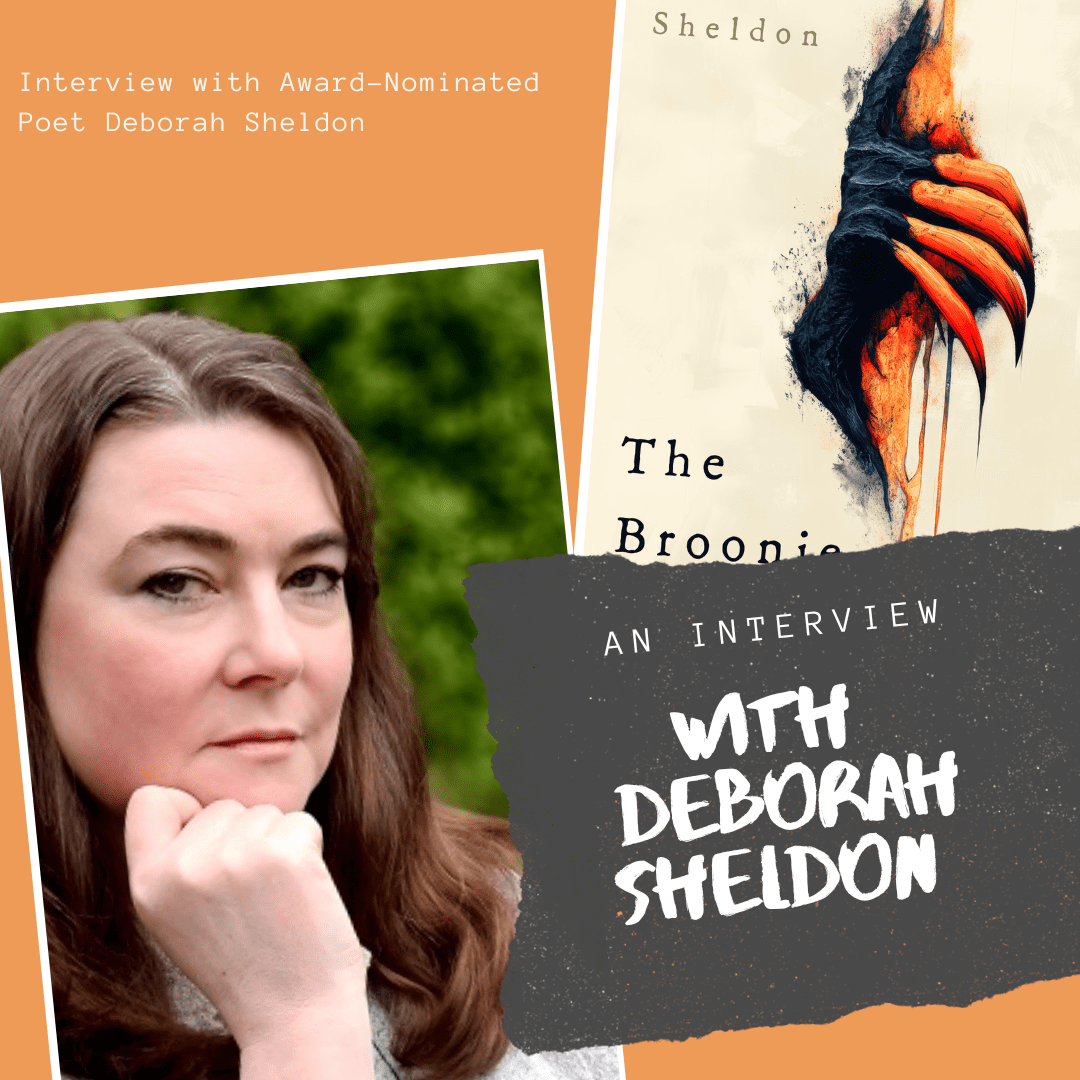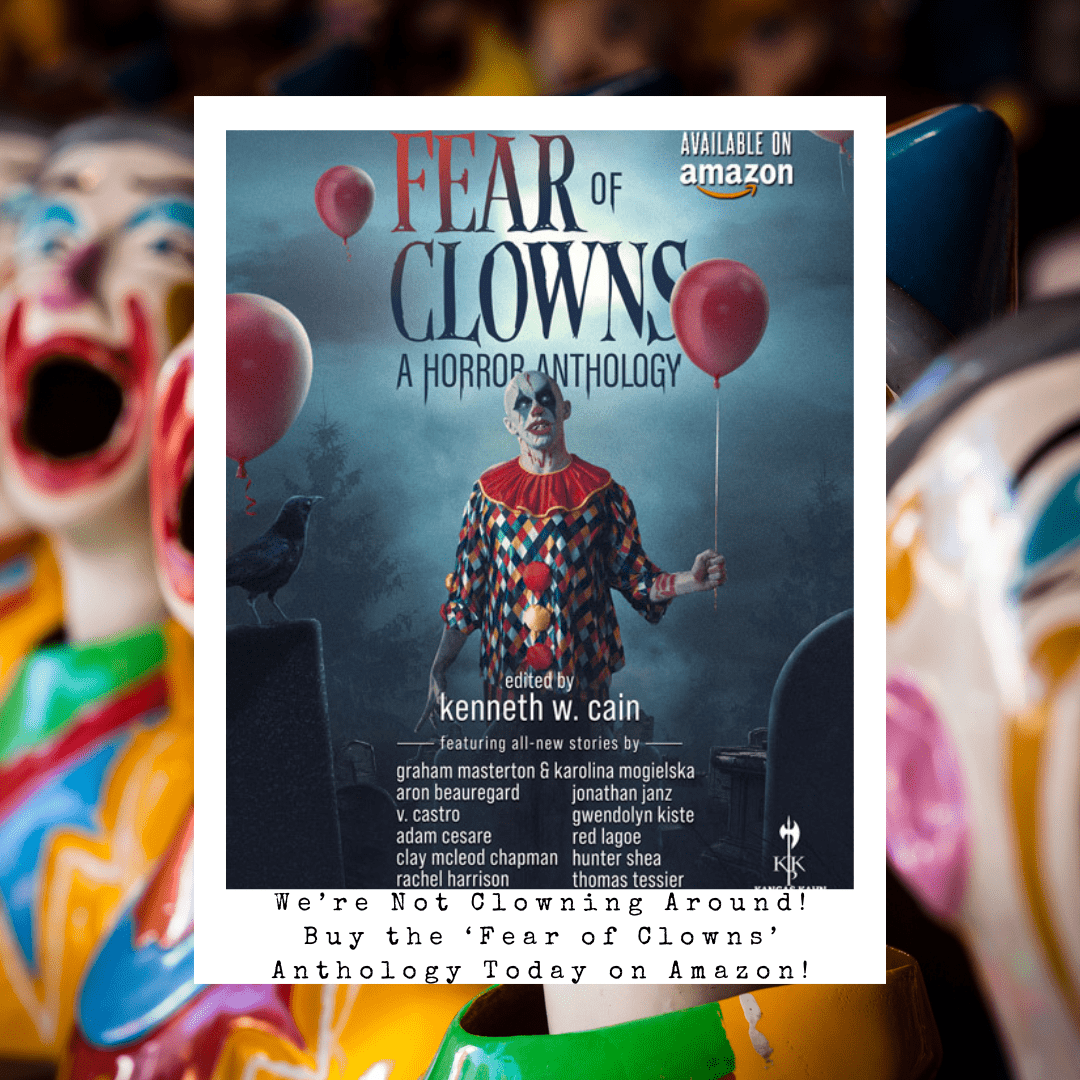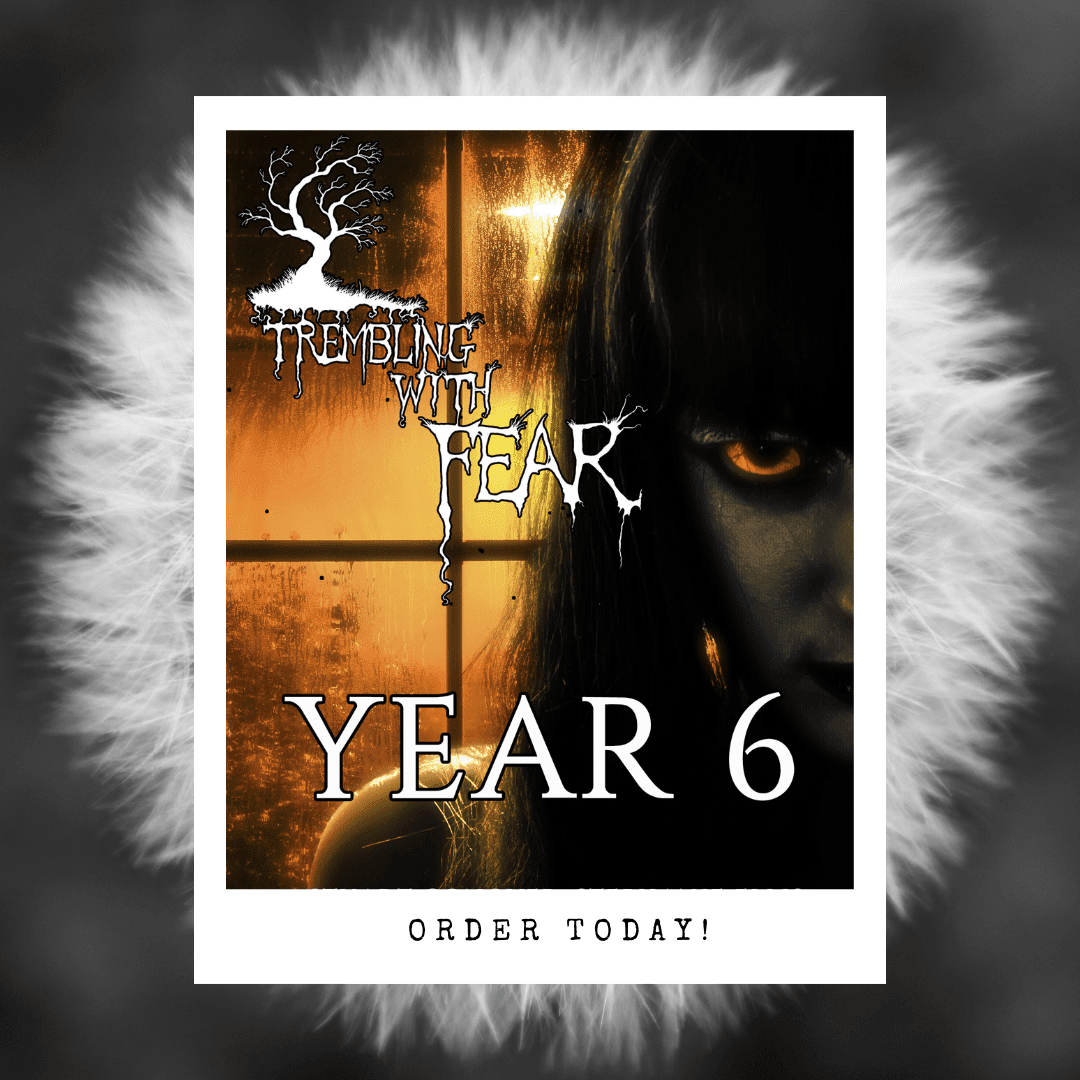An Interview with Award-Nominated Poet Deborah Sheldon
Interview with Award-Nominated Poet Deborah Sheldon
I’m a fan of award-winning horror author and anthology editor, Deborah Sheldon. I’ve read most everything she’s written, including short stories, novellas, novels, and anthologies as well as flash fiction and drabbles. She’s a master of the horror genre in all its forms, and I await each of her regular new publications with eager anticipation, always wondering what it might be – a novel, a collection of short stories, an anthology? I’m happy to report that Deborah Sheldon’s latest publication The Broonie and Other Dark Poems is available now through Hiraeth Publishing. For those of us who read her horror stories with relish, the contents of this poetry collection will not disappoint. Intrigued that Sheldon has now turned her hand to verse, I caught up with her recently to talk about her multi-faceted writing journey.
You’ve had a varied and successful career when it comes to writing – scripts, short stories, plays, novels, to name a few. What inspires you to tackle so many different styles?
My constant need for mountains to climb explains my meandering career, which started in 1986 with feature articles and progressed through TV scriptwriting, medical writing, non-fiction books, short stories, playwriting, novels, anthology editing, and now poetry. Quite simply, I enjoy the challenge of mastering a new writing medium. It feels like unlocking a level in a game, or collecting rare stamps. I don’t know which writing medium I’ll explore next. One day, I’ll just get the itch for something fresh and feel compelled to scratch it.
I had never imagined that you might publish a collection of poems. How long has poetry been part of your repertoire?
I’ve been writing professionally for 39 years, but it’s only recently that I came to poetry. In February 2020, AntipodeanSF published my first poem, “The Sea Will Have”, a Shakespearean-style sonnet. After that, I had the urge to explore poetry in greater detail. In 2022, I began a deep dive, with my focus on studying and writing a range of traditional forms from around the world.
When you’re writing a poem, do you “rehearse” it aloud?
Constantly! Reading a poem aloud while I’m writing helps me keep track of each line’s syllable count and rhythm created by stressed and unstressed syllables. I count on my fingers so I’ve got a visual representation of the line as I speak it. But for some weird reason, I always have to over-enunciate each word and make dramatic hand gestures. If I try to be less “performative”, the meter is harder to “hear”. I must look ridiculous while writing poetry. Anyone watching through the study window would think I’ve lost my mind.
How difficult is it to write a poem and how long does it typically take?
It might take a couple of days to write a relatively short poem, because writing in a traditional form is difficult. I’ll give you an example: the Irish dechnad cummaisc. This form uses quatrains (four-line stanzas) with two differing line lengths. The first and third lines are eight syllables, while the second and fourth lines comprise four syllables that rhyme at the end. To complicate matters, the last word in the third line must also rhyme or assonate (have a similar sound) with a word somewhere in the middle of the fourth line. Yep, that’s tricky. And the dechnad cummaisc isn’t even the hardest form to write.
The traditional forms sound really hard. What’s the most challenging part of writing this kind of poetry?
I think the biggest challenge is finding publications that accept traditional poetry. The trend these days is for free verse. I’ve been published by a few journals, but the one I “clicked with” the most is Illumen, a quarterly magazine from Hiraeth Publishing, edited by Tyree Campbell. Surprise! The Broonie and Other Dark Poems is signed with Hiraeth Publishing.
Now I’m wondering, why not make it easy on yourself and write free verse?
Free verse doesn’t interest me because, in comparison, it seems too easy. There’s no rhyme scheme, meter, syllable count, or line limit. Anything goes! I don’t see the challenge in that.
It’s obvious you’re excited by the challenge of writing poetry. What else gives you that buzz?
I enjoy cryptic crosswords and solve a few puzzles every day. The area of my brain that loves crosswords lights up whenever I’m writing poetry. Another passion of mine is adaptation. Such as reworking my published short stories into plays; an optioned screenplay into a published novel; a novella into a screenplay. It’s about the riddle of figuring out how to reshape my own plot, characters, atmosphere and theme into a new format. Each poem in The Broonie and Other Dark Poems explores a specific poetic form rendered from a drabble, flash fiction piece, or short story of mine that’s already been published.
How do you decide which form of poetry to write?
I have a process that works for me. First, I stroll around the internet to select a poetic form. (As a starting point, Writer’s Digest has a list of 168 of them.) I pick a form that sounds interesting, and spend an hour or two reading “cream of the crop” examples to get a better feel for it. Then I browse through my catalogue of published short fiction and select a story that seems appropriate. I reread my story, create a Word document and pick a working title. Next, I open an online rhyming dictionary, sit back in my chair and stare out the window. In our back yard, there’s a Japanese maple enrobed by a creeper that my husband and I planted as a seedling some 30 years ago. I watch this tree for a while and allow my mind to wander and wool-gather. Before long, my potential first line floats up, and I start typing.
What led you to seek publication for your poetry?
Last year, my poem “The Broonie” was shortlisted for an Australasian Shadows Award. While I didn’t win, the nomination itself bolstered my confidence that, perhaps, I could interest a publisher in a poetry collection. I put together a pitch email, mentioning the nomination and emphasising that each poem was written in a traditional form. Hiraeth Publishing was my first pick. I sent my pitch, and the stars aligned: the publisher expressed interest in reading the manuscript. I put my collection together with much agonising over poetry order. (I leaned on my experience as an anthology editor to decide on the TOC.) Not long after, I got the acceptance email. Now that was a happy day!
*****
 The Broonie and Other Dark Poems
The Broonie and Other Dark Poems
Back-cover blurb
Beasts, nightmares, blood, madness…
From award-winning horror author Deborah Sheldon comes The Broonie and Other Dark Poems, a harrowing collection of verse. Using only traditional forms – strambotto, villanelle, flamenca, sonnet, englyn penfyr, ballad, triplet, décima espinela, and more – Sheldon spins lyrical and visceral poetry.
Prepare for disquieting chills.
Available from online retailers, and direct from Hiraeth Publishing:
EPUB – https://www.hiraethsffh.com/product-page/broonie-and-other-dark-poems-by-deborah-sheldon-2
PAPERBACK – https://www.hiraethsffh.com/product-page/broonie-and-other-dark-poems-by-deborah-sheldon
Author bio
DEBORAH SHELDON is a multi-award-winning author and anthology editor from Melbourne, Australia. She writes poems, short stories, novellas and novels across the darker spectrum of horror, crime and noir. Her award-nominated titles include the novels Cretaceous Canyon, Body Farm Z, Contrition, and Devil Dragon; the novella Thylacines; and collections Figments and Fragments: Dark Stories, and Liminal Spaces: Horror Stories. Her latest releases include the novel Bodily Harm, and her anthology Spawn 2: More Weird Horror Tales About Pregnancy, Birth and Babies.
Deb’s collection Perfect Little Stitches and Other Stories won the Australian Shadows ‘Best Collected Work’ Award, was shortlisted for an Aurealis Award, and long-listed for a Bram Stoker. Her short fiction has been widely published, shortlisted for numerous Australian Shadows and Aurealis Awards, translated, and included in various ‘best of’ anthologies.
Her poetry has been published in various magazines including Illumen, Nightmare Fuel, Penumbric Speculative Fiction Magazine, and Midnight Echo. Her poem “The Broonie” was shortlisted for the Australasian Shadows ‘Best Poem’ Award.
Deb has won the Australian Shadows ‘Best Edited Work’ Award three times: for Midnight Echo 14, and for the anthologies she conceived and edited, Spawn: Weird Horror Tales About Pregnancy, Birth and Babies, and Killer Creatures Down Under: Horror Stories with Bite.
Other credits include feature articles for magazines, non-fiction books (Reed Books, Random House), TV scripts such as NEIGHBOURS, stage and radio plays, and award-winning medical writing. Visit Deb at http://deborahsheldon.wordpress.com













